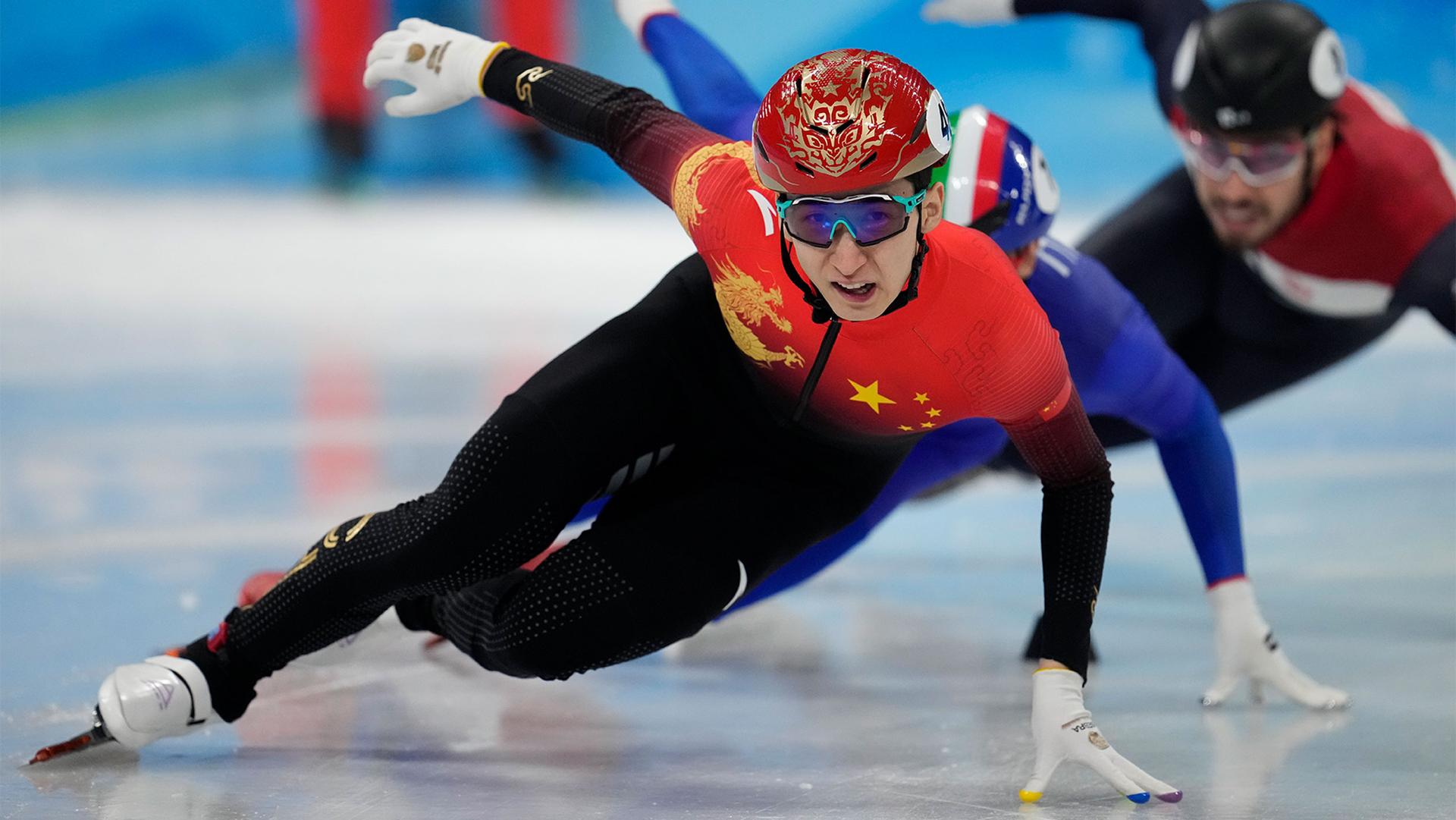Four years ago at the Pyeongchang Winter Olympics, China won just nine medals. That’s compared to 88 medals last year at Tokyo’s Summer Games. So, when they won the bid for this year’s Winter Olympics back in 2015, the race was on to improve their game.
A total of 109 medals will be awarded at the Beijing Olympics, and Team China is determined to give it its best shot.
Before the Games began, Chinese leader Xi Jinping said that the goal of this Olympics wasn’t the medal count. Instead, he said that participation was key. Team China has athletes in almost all the events this time. But winning still has its allure.
Related: Manufactured snow for the Winter Games could lead to water scarcity, environmentalists say
Susan Brownell is an anthropologist who studies China and the Olympics.
“They, both, continue [the] rhetoric [that] medals are not as important as they used to be, while, of course, doing their best to maximize the number of medals they’re winning at the Olympic Games,” she said.
Brownell said China turned to a shortcut that many other countries have also been using: recruiting foreign athletes to compete on their teams.
“It actually was late to the game,” she said. “And it has just taken off since then. So, this is a really, really new phenomenon.”
Related: Human rights groups weigh boycott of 2022 Winter Olympics in Beijing
With Eileen Gu’s amazing win on Tuesday, it already looks like China’s strategy is working. Gu, born in America, nabbed China’s first-ever gold medal in women’s skiing.
But in other cases, the strategy has yet to pay off. American-born Beverly Zhu, or Zhu Yi as she is known in China, was brought onto the Chinese figuring skating team to bolster its chances of success. But when she fell twice during the competition, nationalist sports fans turned on her across social media. But the Chinese government then scrubbed their comments from the internet. Zhu will still have a last chance to redeem herself in competition on Feb. 15.
China’s men’s and women’s hockey teams invested heavily in foreign-born athletes, hoping to avoid potential embarrassment on their home turf. Less than half of the players on either team were actually born in China.
On Thursday, the men’s team lost 0-8 against the US. Still, fans were largely positive about the team on social media. The women’s team was eliminated in the preliminary round of competition.
Related: Move over soccer: Brazil’s award-winning volleyball teams compete for Olympic gold
But recruiting foreign athletes isn’t the only trick China’s got up its sleeve.
They’ve also handpicked summer sports athletes to compete in winter events.
“They’ve just been scientifically selected because they have the right physical capability to become a leading athlete. And then it’s just a matter of teaching them what to do.”
Justin Downes has worked in China’s ski industry for 15 years.
“They’ve just been scientifically selected because they have the right physical capability to become a leading athlete,” he said. “And then, it’s just a matter of teaching them what to do.”
He said athletes from track and field have been picked to cross over to events like skiing and bobsledding.
That’s how 22-year-old javelin thrower Wang Peixuan became China’s first female athlete competing in luge. Her performance Tuesday wasn’t great — but that’s not the point, said Mark Dreyer, who had recently written a book on China’s sports ambitions.
“They’re unlikely to be winning medals this time around,” he said. “But who knows, you know, some of these athletes are pretty young. So, four, eight years from now, they could compete.”
He said China also has a strategy behind which winter sports it’s targeting.
Related: Japan continues to dominate in skateboarding at the Olympics
“China’s gone after some of these less popular sports, like luge, skeleton and bobsled, and with the resources that it has, tries to make gains,” he said.
He said it’s also going after sports that have more medals, like biathlon, cross-country skiing and snowboarding. They’ve invested heavily in infrastructure and manpower. China built a high-tech wind tunnel to simulate ski jumping conditions for its athletes and a brand-new track for sliding sports. They’ve also brought in foreign coaches to give them an edge.
It’s a long-term strategy, he says, and Team China hopes it will pay off.
“If China throws money at it, which it has done and has the capacity to do, it could definitely catch up quite quickly.”
“If China throws money at it, which it has done and has the capacity to do, it could definitely catch up quite quickly,” Dreyer said.
Not quick enough for this Olympics, he added, but a few Winter Olympics down the line. So, watch out, Chinese athletes could be making a lot more trips up to the podium.
